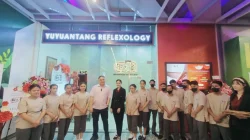The Shift in Employer Priorities: Degrees Losing Value in 2025
In today’s rapidly evolving job market, employers are placing greater emphasis on practical skills, digital literacy, and specialized training over traditional academic degrees that lack direct application in the workplace. As industries adapt to technological advancements and shifting economic demands, graduates with qualifications in certain fields are finding themselves at a disadvantage. Understanding which programs are losing appeal can help students make informed choices about their educational paths.
Support kami, ada hadiah spesial untuk anda.
Klik di sini: https://indonesiacrowd.com/support-bonus/
Below are five degrees that Nigerian recruiters are increasingly overlooking in 2025, along with the reasons for their declining value and suggestions for alternative career paths.
1. Mass Communication
Once a popular gateway into media, public relations, and journalism, mass communication is now seen as too broad and outdated by many employers. The demand has shifted towards candidates with expertise in digital journalism, social media analytics, or podcast production, rather than those who only understand print media theory.
To remain competitive, graduates with this degree should consider adding certifications in video editing, SEO, or data-driven content strategy. These additional skills can open up more opportunities in the digital landscape.
Support us — there's a special gift for you.
Click here: https://indonesiacrowd.com/support-bonus/
2. Religious Studies
Degrees in theology and comparative religion often attract limited roles beyond academic or clerical settings. With no clear corporate career path, these graduates face challenges in securing employment.
To improve their prospects, students can pursue complementary studies in counseling psychology, community development, or ethics compliance. These areas can open doors in non-profit organizations and corporate social responsibility units.
3. Library and Information Science
Automation has significantly reduced the need for traditional library management skills. Employers now seek information scientists who are proficient in metadata standards, database administration, and user experience design.
Graduates of this field can enhance their employability by learning coding languages, familiarizing themselves with content management systems, and gaining experience in digital transformation projects.
4. Pure Mathematics
While pure mathematics forms the foundation for many scientific and technical fields, programs with little applied focus have limited direct career outlets. Employers prefer candidates who can apply mathematical theories to real-world problems such as financial modeling, data analytics, or machine learning algorithms.
Mathematics graduates should consider certificates in programming languages like Python or R, and seek internships in fintech or research units to demonstrate practical competence.
5. Philosophy
Philosophy graduates develop strong critical thinking skills but often lack marketable technical skills. Recruiters tend to favor candidates who can combine philosophical reasoning with training in policy analysis, legal research, or ethical technology design.
To transform theoretical knowledge into in-demand expertise, philosophy students can supplement their studies with courses in public policy, compliance frameworks, or user interface ethics.
Enhancing Career Prospects Through Additional Skills
For graduates interested in these subjects, the key to improving their prospects lies in acquiring targeted technical skills, seeking internships, and earning professional certifications that align with emerging industry requirements. By adapting to the changing job market and developing versatile competencies, students can position themselves for long-term success in their chosen careers.







